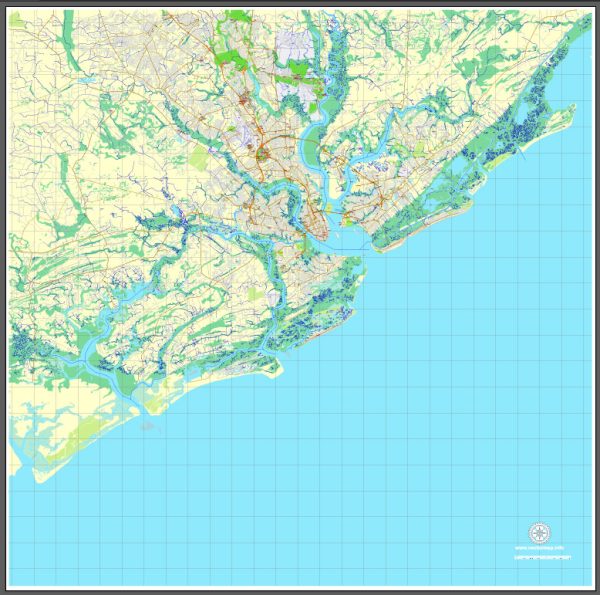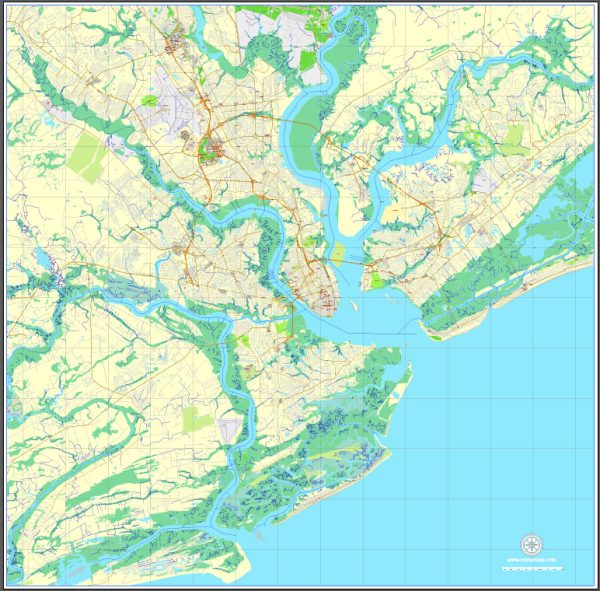Charleston, South Carolina, is a city steeped in American history, with a rich and complex past that has left an indelible mark on the development of the United States. Here is a brief description of Charleston’s role in U.S. history:
- Early Settlement: Charleston was founded in 1670 by English settlers, making it one of the earliest English colonial settlements in North America. It was named in honor of King Charles II of England. The city’s location on the coast, at the confluence of the Ashley and Cooper Rivers, made it a strategic port for trade and a hub for colonial commerce.
- Slavery and Plantation Economy: Charleston played a significant role in the development of the Southern plantation economy, primarily based on rice and indigo cultivation. This system relied heavily on the forced labor of enslaved Africans, leading to the city becoming a major slave trading port in North America. The historic district of Charleston still contains many preserved antebellum mansions, reflecting the wealth generated by the plantation system.
- American Revolution: Charleston was a hotbed of revolutionary fervor during the American Revolution. The city’s citizens played a pivotal role in resisting British rule. In 1780, Charleston fell to the British, but it was liberated by American forces in 1782.
- Fort Sumter: Charleston is most famously associated with the outbreak of the Civil War. The first shots of the Civil War were fired at Fort Sumter, located in Charleston Harbor, in April 1861. The city remained under Confederate control for much of the war and was a key center for the Southern war effort.
- Post-Civil War Era: After the Civil War, Charleston went through a period of reconstruction and recovery. The city continued to be a center of African American culture and political activity, and it played a significant role in the Civil Rights Movement.
- Architectural Heritage: Charleston is renowned for its historic architecture, which includes well-preserved colonial and antebellum buildings. The city’s historic district, with its cobblestone streets and elegant homes, is a major tourist attraction. The preservation of these historic buildings and neighborhoods has contributed to Charleston’s unique charm.
- Cultural Significance: Charleston has a rich cultural heritage, including the Gullah/Geechee culture, which developed among descendants of African slaves in the Lowcountry region. The city is known for its distinctive cuisine, including Lowcountry dishes like shrimp and grits, as well as its vibrant arts scene and annual events like the Spoleto Festival.
- Modern Charleston: Today, Charleston is a thriving city with a diverse economy, including tourism, manufacturing, and technology sectors. It continues to be a hub for education and culture in the region.
Charleston’s history is a complex tapestry that encompasses the highs and lows of American development, from its colonial roots to its role in the Civil War and the ongoing legacy of its unique culture and architecture. The city’s historical significance and charm make it a compelling destination for history enthusiasts and tourists alike.



 Author: Kirill Shrayber, Ph.D.
Author: Kirill Shrayber, Ph.D.